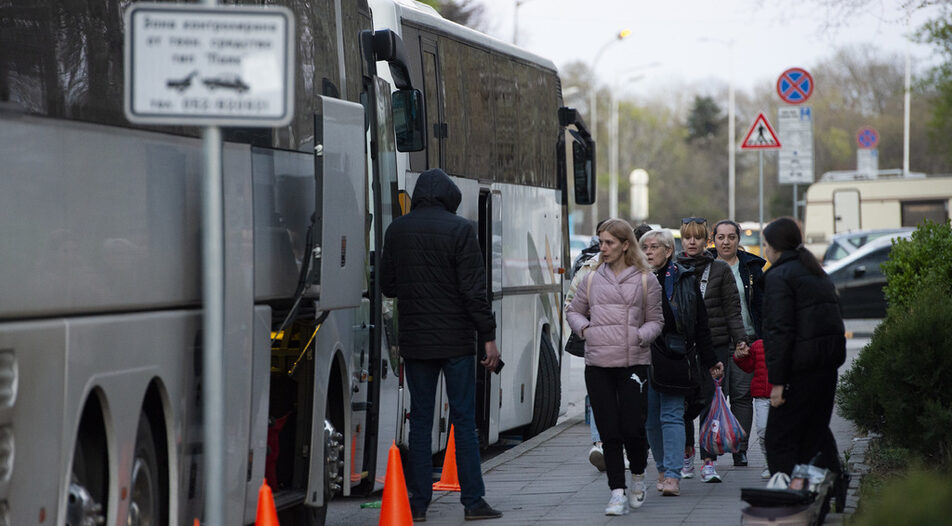During the weekend, the two most discussed topics were the (neverending) topic of the N. Macedonia EU veto and the announcement of the Euro adoption plan.
On the first issue, rumors after the coalition council on Sunday have it that the four parties are seeking a breakthrough that would allow Sofia to partially lift the veto in the coming months if the EU includes Sofia's demands vis-a-vis the rights of the Bulgarian minority in N. Macedonia in the pre-accession negotiation package.
On the second issue, the cabinet's announcement on Friday that the Finance Ministry will start the technical preparation to be ready to join the common European currency in 2024 spurred a wave of anti-euro comments by various political players, including coalition partner BSP and the pro-Russian Vazrazhdane, which called for a national referendum on the topic. In other news:
Resettling of Ukrainian refugees currently in private hotels kicks off slowly
Only a handful of the 7,000 Ukrainians who expressed interest in relocating from privately owned hotels on the Bulgarian seaside (according to the National Crisis Committee) turned up for the transport organized by the state on Sunday and Monday, Bulgarian media reports.
Only five out of 400 people signed up showed up for the Sunday train from Varna to the country's interior, where they were supposed to be resettled in state-owned holiday homes and hotels. Another train for Ribaritsa, Panichishte and Veliko Tarnovo on Monday was boarded by 78 of the 140 pre-registered Ukrainians, many of whom complained of not being given information about their destination.
Total Producer Price Index up 40 percent year-on-year in April: NSI
Price growth in the production and distribution of electricity, heat and gas in April was the main driver of the increase in the Total Producer Price Index, which rose by 40.2 percent year-on-year to reach a new record, according to the latest data from the National Statistical Institute (NSI). In comparison, the year-on-year increase for the month of March was 36.1 percent, and 32.3 percent in February, marking a steady increase in recent months.
Minimum wage to "certainly" reach 800 BGN in January 2023, Social Policy Minister claims
From 1 January 2023 the minimum wage in Bulgaria will "certainly" reach at least 800 BGN (just recently increased from 650 BGN to 710 BGN) and it will be calculated under a new mechanism to ensure it always stays at around half the amount of the average wage. That was announced by Social Policy Minister Georgi Gyokov (BSP) on Monday on Bulgarian National Television (BNT). Gyokov said that he insisted that the increase should happen as early as 1 July of this year, but his coalition partners and Finance Minister Assen Vassilev said it would be a precedent to increase the minimum wage twice in one year.
During the weekend, the two most discussed topics were the (neverending) topic of the N. Macedonia EU veto and the announcement of the Euro adoption plan.
On the first issue, rumors after the coalition council on Sunday have it that the four parties are seeking a breakthrough that would allow Sofia to partially lift the veto in the coming months if the EU includes Sofia's demands vis-a-vis the rights of the Bulgarian minority in N. Macedonia in the pre-accession negotiation package.












